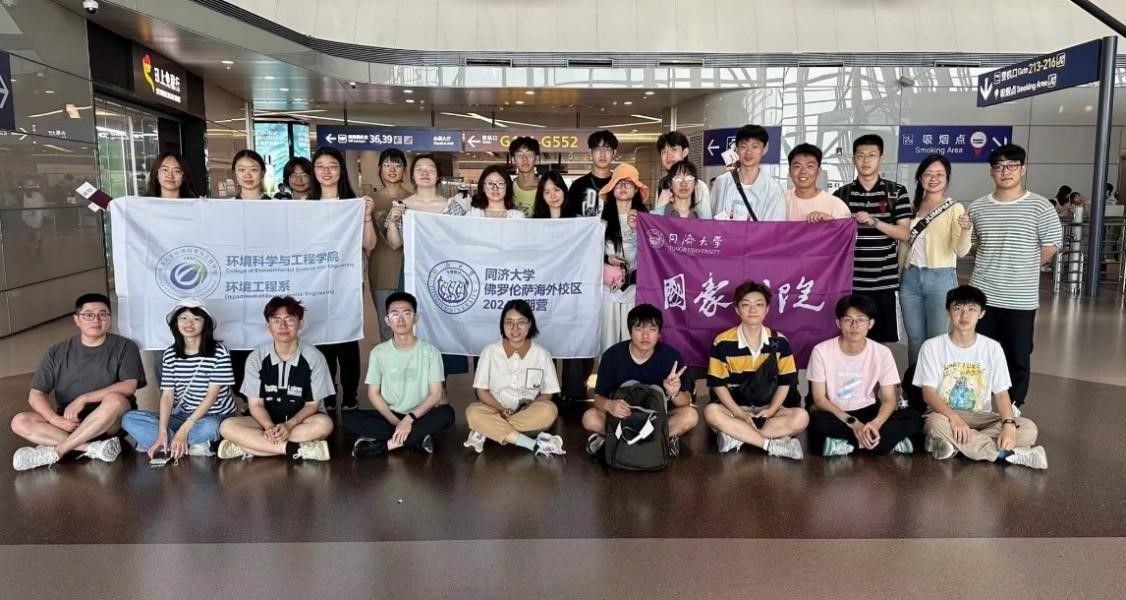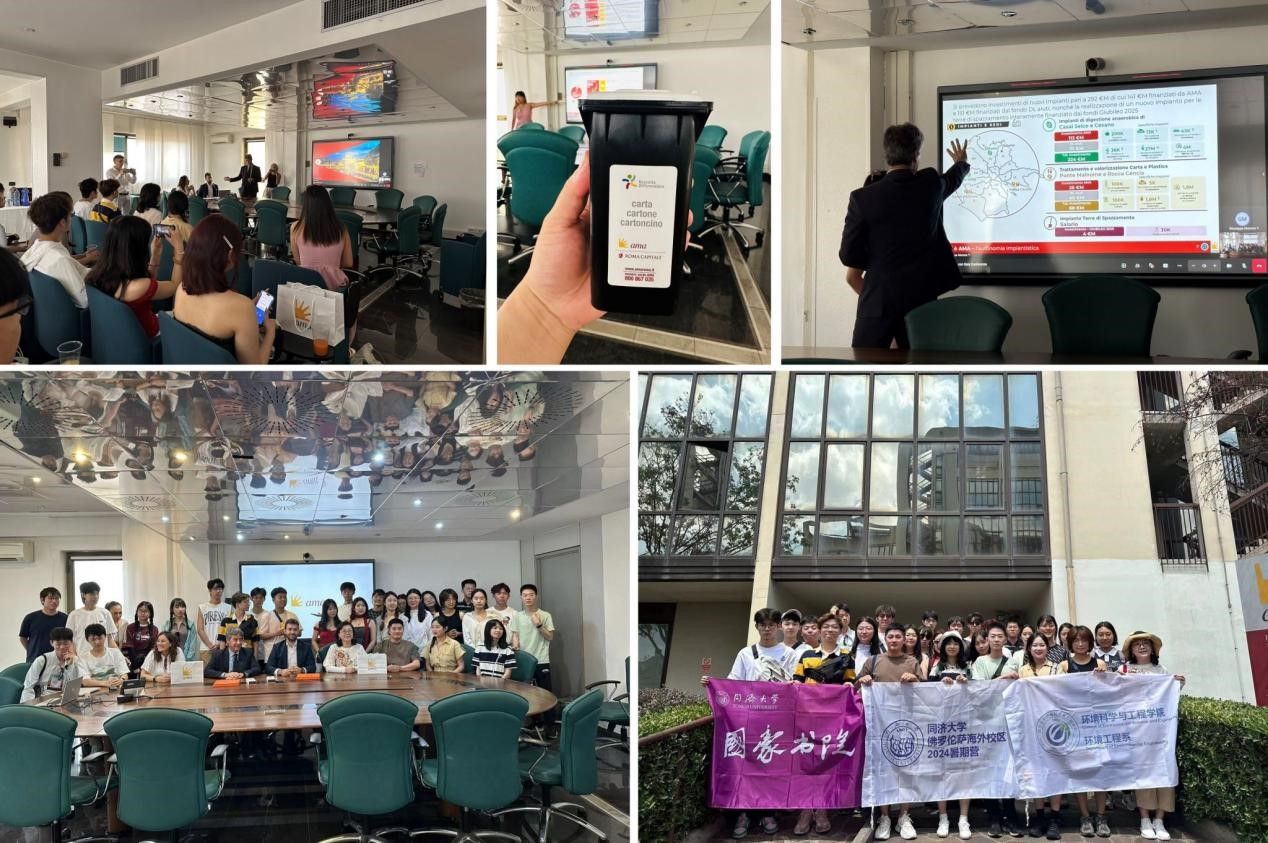On July 7, 2024, the Tongji University-Florence Overseas Campus 2024 Summer Camp officially began. Led by Professors Wang Lin and Wu Bing from the College of Environmental Science and Engineering and Professor Sun Qiunan from Guohao Academy, 25 undergraduate students embarked on a 14-day overseas summer practice program across four Italian cities: Rome, Florence, Milan, and Venice.
Rome: The First Stop
In Rome, students and faculty engaged in in-depth discussions with AMA, a waste management company, focusing on waste sorting, collection, and disposal. They learned about the challenges and innovations in Italy’s transition to smart waste management. The group also toured the ancient Roman ruins, observing the advanced water supply and drainage systems that showcased the ingenuity of ancient Romans. Cultural visits to landmarks such as Castel Sant’Angelo and the Vatican Museums offered a glimpse into the historical depth of the "Eternal City."
Florence: The Renaissance Experience
In Florence, the group visited the Anconella Water Treatment Plant to study its efficient and stable operations and technological innovations. At the University of Florence, they learned about Italy’s energy policies and toured the Building Energy Efficiency Museum. Through group presentations, students gained a deeper understanding of the similarities and differences between Chinese and Italian environmental protection efforts. A visit to the Uffizi Gallery provided an opportunity to appreciate the charm of Italian Renaissance art.
Milan: Sustainability in Action
In Milan, the team toured CAP Group’s largest wastewater treatment plant, learning about its philosophy of sludge resource utilization.
Venice: The Final Stop
Venice, the last stop of the study tour, featured an urban water environment survey. Students and faculty gained awareness of the city’s water quality challenges and the threats posed by rising sea levels. They also explored the MOSE Project, a major initiative aimed at protecting Venice from flooding.
This study tour not only facilitated exchange and collaboration in environmental protection between China and Italy but also allowed students and faculty to immerse themselves in Italy’s rich history, culture, and art.

